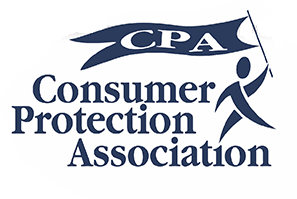What is the Consumer Protection from Unfair Trading Regulations 2008?
19 Mar 2019
Regulations are complicated and contain a lot of jargon. We at the CPA strive to help consumers and home improvement installers alike.
The Consumer Protection from Unfair Trading Regulations 2008 (CPRs) was introduced to prevent traders in all sectors from engaging in unfair commercial practices against consumers, with a primary focus on marketing and selling.These comprehensive regulations were passed as a method of dealing with rogue traders and companies deliberately setting out to exploit loopholes in existing laws.


What classes a commercial practice as unfair?
The regulations state that commercial practice is unfair if:- It affects or tries to affect, a consumer’s ability to make an informed decision about a product - It breaks the standards of skill and care required for a trader in their industry31 practices were banned in the regulations. The banned practices include:• Pressure selling and aggressive sales tactics - unwanted or persistent approaches by phone or email - telling the consumer that they can’t leave the premises until a contract is signed - visiting a consumer at home and not leaving when asked to• False endorsements - telling consumers that all products are approved by an independent organisation when it isn’t - telling consumers that their company is a member of a trade organisation when it isn’tMisleading actions, misleading omissions and aggressive sales tactics are mentioned in CPRs.
Misleading actions
A trader is barred from using misleading or underhand tactics to get the consumer to make a decision they may not have made if they had been present with the correct facts. A misleading action will deceive or give false information to the consumer and generally occurs during the advertising or sale of a product.Some misleading actions in the act include:• adjusting the method and date that a product was manufactured • incorrectly informing consumers on the geographical origin of a product • not including the benefits or risks of a product • stating that a product conforms to a code of conduct which it does notMisleading omissions
A trader is in breach of the regulations if they omit or hide information from the consumer as they are considering a purchase. Another breach would be if the trader offers information that is unclear, ambiguous or intelligible.These omissions may lead the consumer to make a misinformed decision. An example of this would be to price a product and not clearly state any additional charges, such as postage.Aggressive commercial practices
This section of the CPRs is to protect the consumer from the darker side of the sales world. These practices are used to coerce, intimidate or exploit a consumer. These practices would be an undue influence on a consumer’s ability to make an informed decision about a product.Several factors will be considered when deciding if a trader is in breach of this regulation, such as:• the use of threatening or abusive language/behaviour • the exploitation of a situation or circumstance by a trader, leading a consumer to make an informed decision concerning a product.
How to avoid breaching the Consumer Protection from Unfair Trading Regulations 2008
Traders should review their selling practices to ensure that they aren’t in breach of the regulations. All advertising and labelling of products should be thoroughly reviewed. Training for representatives selling any products would be advisable. Traders that act fairly and responsibly towards their customer may not need to change their practices.